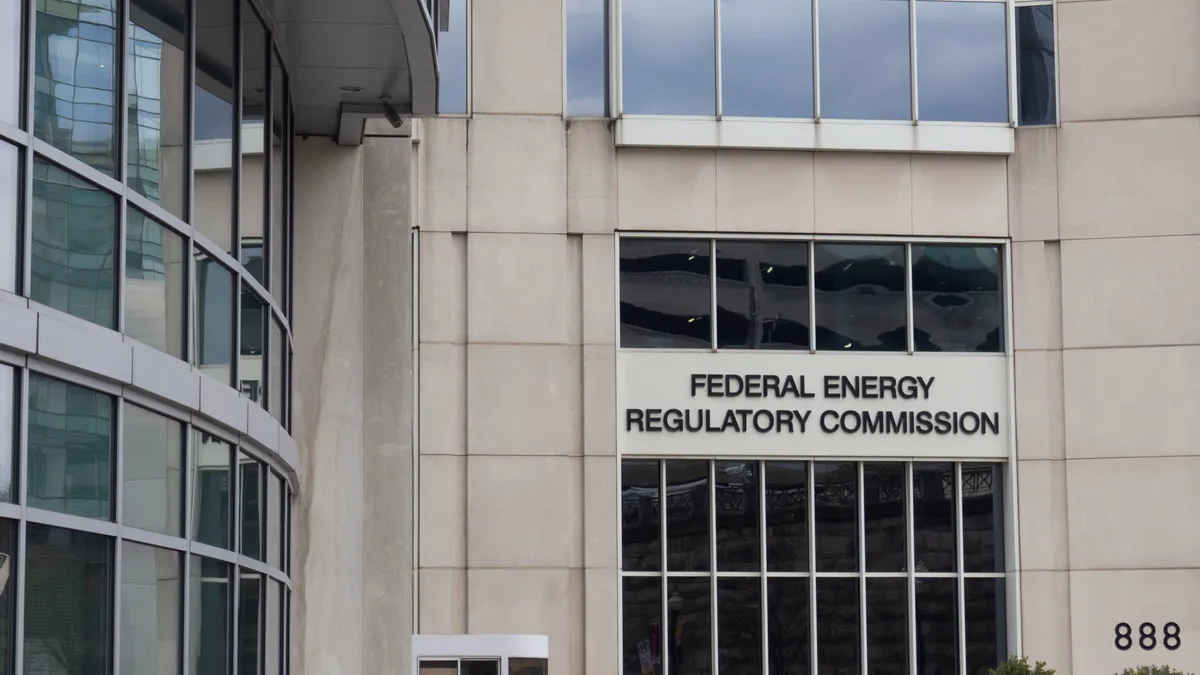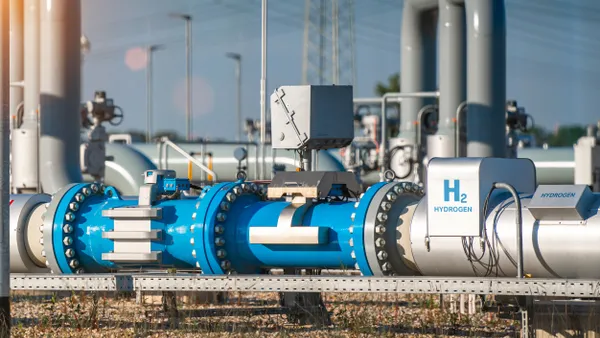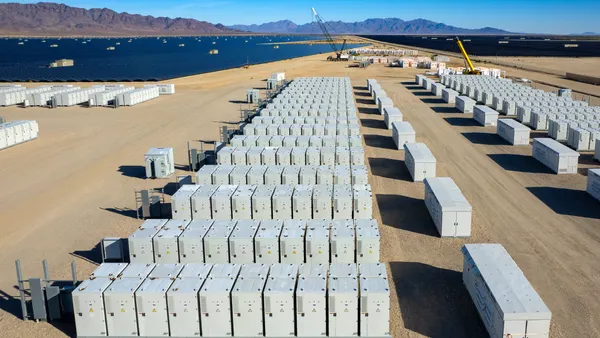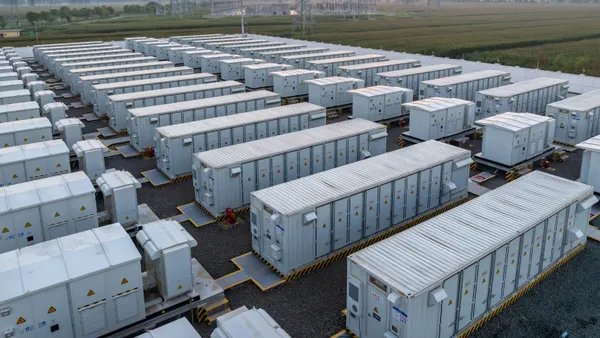Dive Brief:
- The Trump administration last week approved paperwork necessary for two new regulators to be sworn in at the Federal Energy Regulatory Commission (FERC), clearing the way for the final vacancies at the five-member commission to be filled.
- The White House on Tuesday signed off on documents allowing energy lawyer Kevin McIntyre and Senate staffer Richard Glick to take their seats at FERC, Platts reports. McIntyre is expected to be made chairman, and anonymous sources told the outlet the swearing-in ceremony could happen as soon as this week.
- The new regulators will arrive at FERC as it considers a controversial proposal from the Department of Energy to subsidize coal and nuclear generation. Acting Chairman Neil Chatterjee this month outlined an interim plan to keep those plants open as regulators evaluate the issue further, but it remains unclear how the incoming regulators view the proposal.
Dive Insight:
Confirmed by the Senate on Nov. 2, McIntyre and Glick had to wait nearly three weeks for the White House to sign off on the documents necessary for the new regulators to take their seats at FERC.
The delay stoked fears in the power sector that FERC may not have a full contingency of regulators to vote on DOE's Notice of Proposed Rulemaking (NOPR), which proposes cost recovery for plants that keep 90 days of fuel supply onsite. FERC faces a Dec. 11 deadline to take some action on the proposal.
The period also extended the chairmanship of Neil Chatterjee, allowing him more time to craft an interim proposal that he says would keep necessary coal and nuclear plants online while FERC further examines the issues underlying the DOE proposal. Chatterjee outlined the plan to Utility Dive on Nov. 15.
Chatterjee's plan would see FERC issue a "show cause" order to regional grid operators asking them to identify plants that provide "necessary resilience attributes." Those plants would be granted temporary cost recovery through a mechanism that would look similar to existing Reliability-Must-Run tariffs, though Chatterjee said details could change in the coming weeks.
Both the NOPR and Chatterjee's interim plan are controversial. A wide array of power sector interests and former regulators argue providing cost recovery to baseload generators is unnecessary and could unravel wholesale power markets.
Neither McIntyre nor Glick have weighed in directly on the DOE proposal or Chatterjee's interim plan, but in their confirmation hearings each regulator pledged to keep the commission independent and "fuel-neutral."
“The importance of [baseload] resources cannot be denied,” said McIntyre, who previously headed the energy practice at Cleveland law firm Jones Day. “However, FERC is not an entity whose role includes choosing fuels for the generation of electricity. FERC’s role rather is to ensure that the markets for the electricity generated by those facilities proceed in accordance with law.”
“The commission does not have the authority, nor should it, to prop up a failing technology,” said Glick, former counsel to Democrats on the Senate Energy and Natural Resources Committee. “The DOE grid study suggests whole there are some reliability attributes that those technologies provide … that the loss of those technologies — the loss of the baseload generation — has not had an impact on reliability."
Chatterjee told Utility Dive he had not yet discussed his interim plan with the incoming regulators, but expects they will have no problem evaluating it and the NOPR before the deadline next month.
"They’re not going to need a long lead time to get up to speed on this," he told reporters after the commission's monthly meeting last week.













